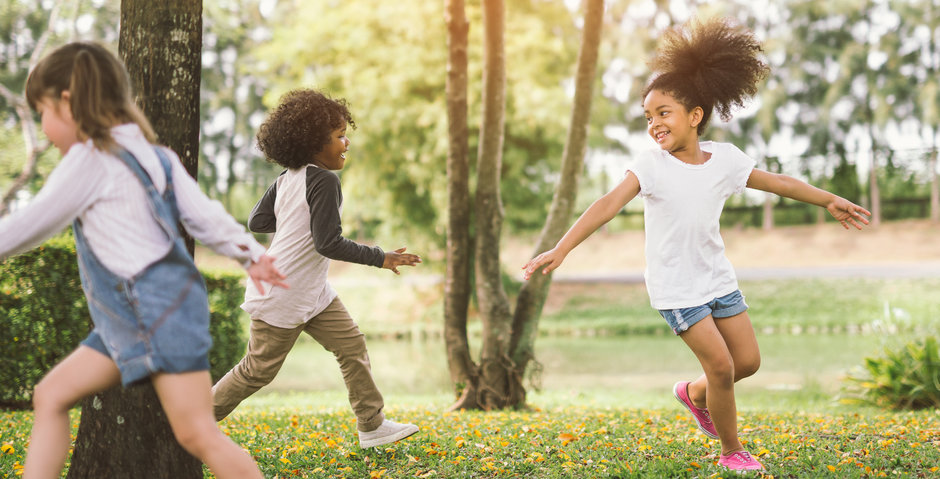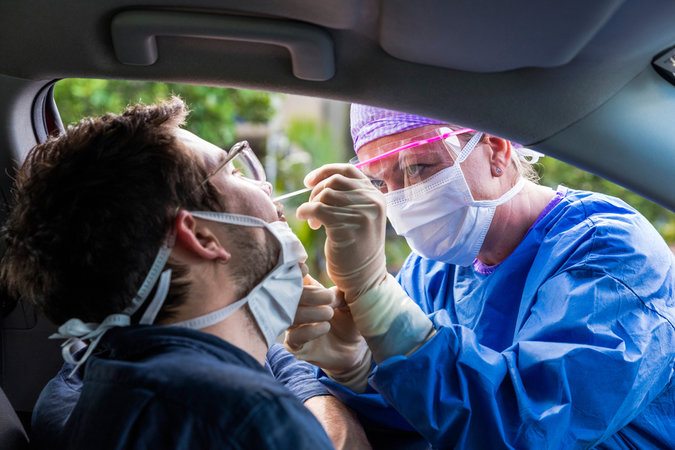

(Shutterstock)
We need to invest more in physical education and access to youth sports. For children of color, it’s a way to tackle obesity and other health disparities while building their self-esteem.
Tarik Kitson, Active Plus | July 8, 2020 | Opinion
“It made me feel good about myself.”
I work with some of the most underserved kids in New York City, providing health and fitness education through a Harlem-based nonprofit, so this youngster’s self-reflection about physical exercise struck a chord for me.
I’m looking at it now with fresh eyes, as America confronts its mistreatment and disrespect for Black lives through daily protests, and it is painfully evident that feeling good and having self-worth are emotions that seem like yet another privilege denied to people experiencing persistent discrimination.
The reflection was heartwarming, yet rare, as I know that too many school-age children of color do not receive nearly enough daily physical activity, and the self-esteem and well-being that accompanies it. As activists scrutinize local, state and federal budgets while casting a critical eye on police spending, there is an opportunity to do more by these kids. We could direct additional public and private funding toward physical education and access to youth sports.
We also could consider declaring racism a public health crisis, as Boston, Cleveland, Denver and Indianapolis have done, and empower local and state officials to take appropriate steps to improve health outcomes. As we’ve come to understand the coronavirus’ disproportionate impact on people of color, some elected officials are acting on the data. Last month in Ohio, for example, Gov. Mike DeWine announced the creation of a new position in the state health department, a deputy director of social determinants of health and opportunity, to tackle inequities.
Among those inequities is the fact that people of color disproportionately suffer from obesity, a key risk factor for prolonged illnesses such as cancer and diabetes. Recently, researchers documented that obese patients with COVID-19 were more likely than non-obese individuals to be admitted to acute or critical care.
The Centers for Disease Control and Prevention says that childhood obesity can be prevented by consuming healthy food and engaging in daily physical activity. Yet in underserved communities, access to safe places to exercise is not always available. During periods of stay-at-home orders, virtual physical education led by teachers or coaches is needed, but is not always provided or accessible. Researchers say that as a result of the COVID-19 pandemic and school closures, even more children are at risk of becoming obese. And stay-at-home orders and quarantine may lead not just to reduced physical activity but also mental health and isolation related concerns.
I believe that coaching kids in sports and other beneficial physical activity on a regular basis — in person as much as is safe and possible — teaches them skills that will last a lifetime, and may even save their lives. And having coaches and teachers who look like the community they serve is beneficial, both for kids to have role models and for communities to value diversity and inclusion.
As a Black man with years of experience in public health, I am cautiously optimistic that with the renewed focus on addressing racism and strengthening communities we may be able to break the cycle of poor health outcomes among minorities. Across the country, local and state leaders are having discussions about aligning financial and human resources with addressing racial disparities, particularly with regard to childhood obesity and other social determinants of health.
The self-esteem I’ve seen blossoming in children and teens engaging in healthful physical activity — the feeling that exercise “made me feel good about myself” — is a welcome antidote to the degrading effects of lingering institutional racism that impedes a child’s feeling of self-worth and leads to dangerous health outcomes.
I know that exercise and nutrition education can create a positive impact when our community needs it the most. We can, and we must, invest in health education for our kids. They matter.
Governing‘s opinion columns reflect the views of their authors and not necessarily those of Governing‘s editors or management.
Contributor
| @ActivePlusNYC
Florida Election Official Disagrees with Trump on Mail Voting
The president says vote by mail is riddled by fraud. Gov. DeSantis, who supports Trump, agrees, but the elections supervisor for Palm Beach County, who DeSantis appointed to the job, refutes that claim.

GOV After Ironing Out Kinks, States Renew COVID-19 Contracts
A collaboration between tech companies and several states got off the ground early in the pandemic using emergency contracts for testing. After a rocky start, the programs have entered their next phase.
California Cities Redirect Millions from Police Budgets
Several Bay Area cities have cut millions from their police budgets, but the plans don’t stop there. They’re looking to remove police from schools and put money toward mental health services.
Special Projects